Bust out a sombrero and put up those metal horns, it’s time to rock, mariachi style. The world’s first (and let’s be honest, probably only) “metal mariachi” band—appropriately named Metalachi—is once again blazing up stages around the country and they’ve got their sights set on Sacramento for a not-to-be-missed gig at Harlow’s on Saturday, March 17. Come watch this group of skilled mariachi players put their spin on rock and metal classics such as “Ace of Spades” by Motörhead, “Raining Blood” by Slayer, “Symphony of Destruction” by Megadeth, “Hot for Teacher” by Van Halen, “Crazy Train” by Ozzy Osbourne and so many others. Tickets are only $15 in advance online at Harlows.com, or $17 at the door. This one is for 21-and-over only, sorry kiddos! Doors open at 8 p.m. with the show starting one hour later. Locals Whiskey and Stitches will take the stage first. Harlow’s is located at 2708 J St. in downtown Sacramento.
Tag Archives: Harlow’s
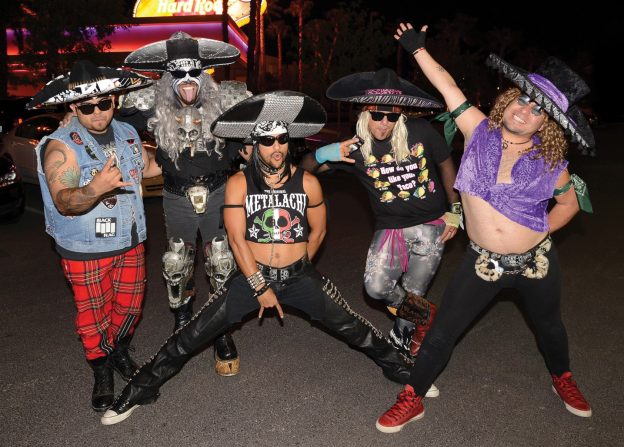
What Happens When You Mix Mariachi and Metal? Come Find Out When Metalachi Plays Harlow’s! • March 17, 2018
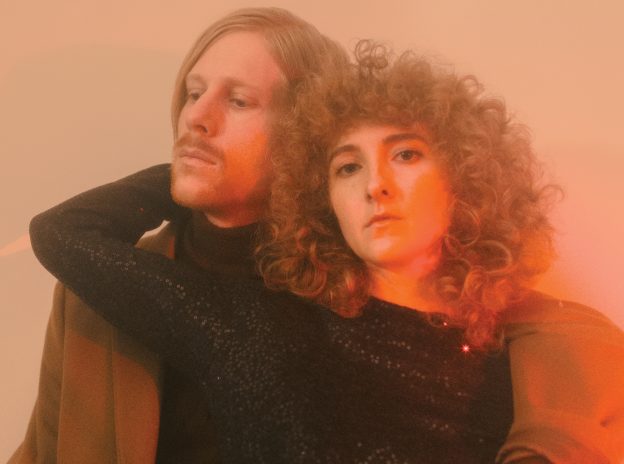
Making a Racquet • Tennis Serves Up Aces with Their Own Label, New EP
When it comes to performing live or working under deadlines, many musicians know that anxiety and panic attacks are occupational hazards. For Alaina Moore of the Denver pop band Tennis, her anxieties came, aptly, while she was writing a song about anxiety.
The track in question, “I Miss That Feeling,” is featured on Tennis’ upcoming EP We Can Die Happy, and was originally intended for the duo’s latest LP Yours Conditionally, but kept giving Moore trouble.
“I thought it would be easy and it wasn’t,” Moore says. “It just kept evading me. It’s one of those songs where I think I wanted too much out of it.”
Determined to have the track make We Can Die Happy, Moore pushed herself to get the song done in just the way she wanted in time to be included. The final bit of encouragement to finish came in the form of a panic attack Moore had during a yoga class.
“Obviously,” Moore says. “I was not calm or meditative at all.”
The panic attack eventually subsided after Moore was given immediate support from her yoga instructor, and she finished the track and EP.
“It was worth one panic attack,” Moore says.
Moore would be the first to say that her own songwriting habits don’t tend to help the anxiety surrounding her work process. Only about half of the songs that make up We Can Die Happy were finished when she and Patrick Riley—Moore’s husband and bandmate—entered the studio.
“That’s my greatest hindrance,” Moore says. “I’m just the slowest, most laborious songwriter and I, like, never commit to anything. So this was good practice for me.”
The EP is set to be released on Mutually Detrimental, a label the husband and wife started to release Yours Conditionally and to become more independent.
Moore and Riley were feeling rundown by labels and the music industry as a whole after the release of their third LP Ritual in Repeat, so they decided to go sailing in the Pacific Ocean. Hitting the open seas isn’t a first for the band—a sailing trip along the Eastern Seaboard in 2010 is what inspired the two to start Tennis.
“The world of living aboard a ship and sailing is so deeply demanding and immersive, and the same is true of writing and touring a record,” Moore says. “It was right when we were hitting that burnout from our third record that we were like, ‘OK, I’m ready to sail again.’”
Both wondered if this trip would mean the end of the group, but they would have accepted that as an outcome since they felt unfulfilled in their professional lives at that point.
“It felt like we were working in the wrong direction,” Moore says. “We didn’t even know what it would look like to make it feel good again and have it actually fit our lives.”
The end of their excursion did not mean the end of the “baby indie band,” as Moore describes them, but the beginning of a whole new chapter. They were inspired again and went right back into writing music, except this time they were going to go it alone.
Moore and Riley handled their own production, licensing and pretty much everything behind creating their fourth album. After years of having help and some sense of security from labels, Tennis became a completely DIY band that focused more on artistic satisfaction than fiscal security.
“I really, really love being my own boss, and so does Patrick,” Moore says. “I feel so fulfilled and satiated. Every little thing that we do, it feels OK if that’s the last thing ever.”
Moore and Riley found that signing with major labels didn’t work for them, but they also don’t see how it works for almost any indie artist. They even named their label Mutually Detrimental as a slight at the music industry.
“You hear of these horrible major label deals that ruin the career of an up-and-coming band where everyone ends up miserable,” says Moore. “A label has artists who hate them and don’t give them good work. The artist’s career gets stilted or ruined and, yet, people are still signing these same old deals as if it’s 1962.”
That’s why Moore and Riley gave Mutually Detrimental the slogan “bad for everyone.”
The label is only releasing music from Tennis for now, and it might stay that way for some time. Moore says that they aren’t looking to sign any other acts right now because of finances, but they also don’t want to put other artists in the position of being under the pressure of a label—even if said label is run by fellow musicians.
“I think that a label should be like a paved road, and bands should walk themselves down it,” Moore says.
Moore says that the traditional setup of a label giving high-interest loans to a band is completely unreasonable. Bands could, in theory, get a more sensible loan from a bank and be able to keep the intellectual property to their music once the loan has been paid. It would be easy to say that a label then puts in a lot of work of which artists are not familiar, but Moore has ideas for that as well.
“I would want to use our network for bands to release their own music,” Moore says. “We wouldn’t be putting up money or taking percentage or licenses or anything, because I don’t think that’s in the spirit of artmaking. I don’t want to be a venture capitalist.”
None of this, however, is set to happen in the near future. It’s mainly Moore’s dream of being helpful and supportive of an art community that she has been part of for years.
For now, she has plenty more to focus on with Tennis. The duo’s touring schedule has been nearly entirely booked since the release of their last album. They played Coachella, went on a stint of supporting Spoon and the Shins, as well as a slew of headlining tour dates that are continuing into at least February of next year.
“I always feel so baffled [by being able to tour], like, I don’t think I’m interesting enough,” Moore says. “I’m like, ‘you guys are still coming to these shows and I don’t know what you see, but thank you so much.’”
Moore and Riley keep their live show antics simple but are perfectionists when it comes to their sound.
“We don’t have any fancy lights, I can’t dance or have any outfit changes or whatever. I don’t crowd surf,” Moore says. “I’m always completely awed that anybody keeps coming to our shows.”
As time goes on, Tennis will be able to help build an artistic community. They’ve had growing success and feel confident in banking on themselves for the foreseeable future. Music is an art and art deserves a community of love, support and guidance—the kind of guidance that Tennis wants to one day provide.
For now, they are more than happy to be able to create what they want to create on their own terms. They are artists in the truest sense because finances take a backseat to the quality of the music. Mutually Detrimental, and the music they’ve released with the label, has been nothing but beneficial.
See Tennis live at Harlow’s (2708 J St.) on Nov. 27, 2017, at 7 p.m. Tickets are $15 in advance and can be purchased through Harlows.com. Wild Ones will also perform.
**This article first appeared in print on pages 16 – 17 of issue #252 (Nov. 6 – 20, 2017)**
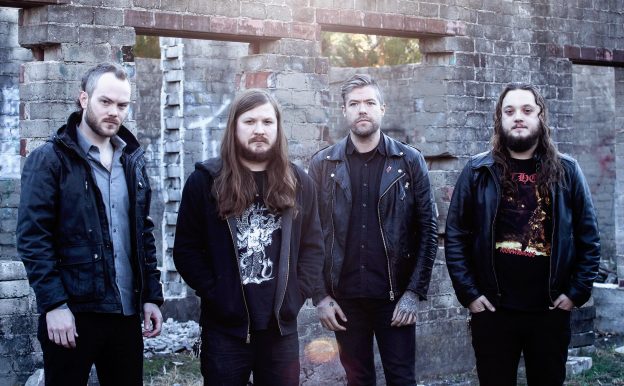
The Freedom to Change • Pallbearer Proves Practice Makes Perfect on Their Third Album, Heartless
With a name like “metal,” you’d expect the heavy music genre to be a bit rigid and stubborn, and in some ways it is, but bands like Pallbearer prove that metal’s edges can be, and perhaps should be, malleable.
Pallbearer’s latest album, Heartless, the band’s third full-length for Profound Lore Records, was three years in the making, and it’s clear that the time was put to good use. Heartless is as intensely technical as it is beautifully ethereal. Songs such as “Thorns” combine searing riffs with an almost airy sense of melodicism, tempering the sharp, meticulously precise edges of Pallbearer’s musicianship with a relatable feeling of anguish. According to the band’s bassist and vocalist Joseph D. Rowland, Heartless finds the band accomplishing some of the goals it set out from its inception.
“I would say Heartless is the culmination of all the things we’ve been talking about for years and years, like the direction we wanted to head, which is combining the hyper melodic and tragic sounding early ‘90s doom metal stuff with basically every other kind of music we enjoy—within reason, but also without limits,” Rowland said in a recent interview with Submerge before he and the band headed to Oceania for a string of dates in Australia and New Zealand.
“The way that Heartless ended up as sort of an artistic statement,” he went on to say. “It’s something that we’ve been discussing internally and honing in on for eight years now, basically since we wrote the very first music for Pallbearer … Finally, we’ve had enough practice by now from touring so much that we were able to pull it off.”
After the band returns from overseas, they will embark on a string of North American dates as headliners and also in support of French metal giants Gojira. The band will kick off their tour, which will last through the waning days of summer, in Sacramento at Harlow’s. In anticipation of one of the most notable metal shows of the season, we spoke with Rowland about touring, his new album, fantasy art and bands named after places—you know, the best things in life.
You’re about to embark on a string of dates in Australia and New Zealand. Is there a good metal scene in that part of the world?
I would say it’s one of the best. People seem really into it. People seem to be really enthusiastic about going to shows out there. When we played Australia before, basically every show was a barn burner. It was fun.
Do you find that it’s the same in the States for you guys or are the crowds different?
It just depends on where we’re at. There are definitely some cities that feel almost like a party vibe instead of just a normal show. I think it has a lot to do with whether weed is legal …
So you guys slay it in Colorado, then?
[Laughs] Yeah, and in other places.
I’m a little jealous you guys are going to New Zealand, because I think they still have the Hobbit village set up from Lord of the Rings.
I don’t know if we’ll have time to see that, but that would be cool.
I read in a review of your latest album that you’re sort of the hype man on stage. Do you feel that that’s your role in the band when you’re playing live?
Honestly, I think all of us feed off the energy the songs have live. We may not seem like we’re the most energetic band on record, but the pace of the songs definitely picks up live. I think all of us leave it all on stage. We’re really trying to put a lot of ourselves into the music, so I can definitely see how that might come off as being the hype man of sorts. I have always put as much of myself physically and mentally and metaphysically into the music.
I’m new to your band. Do you find that more and more people are starting to become aware of your music? Heartless has been getting great reviews, and you also just got the Best Underground Band Award from Metal Hammer a few weeks ago. Do you find that your audience is expanding now?
Yeah, I do feel like it’s expanding … A lot of our early fans, I think, have started to drift away just from the fact that we’re not necessarily playing the same style of music 100 percent anymore, which is understandable. If people got into us from the sound that we started out with nine years ago, I don’t blame someone for deciding we’re going in a direction that they’re not looking for. At the same time, we’ve had aspirations of what we wanted to do musically for a long time. Some people understand that and they like the direction, and some people don’t, but I think what we’re doing now has drawn in people from a lot of different angles. It’s not just super deep underground metal fans any more. It’s people who like classic rock and prog rock and things like The Cure and Smashing Pumpkins.
Like I said, I’m new to your band, but I loved Heartless. It’s cool to hear you say “without limitations,” because that’s honestly the first thing that popped into my head when I was listening to it. The songs have an expansive feel to it. “Lie of Survival” was my favorite track on the album. I was hoping you’d be able to talk about how that song came together.
I was sort of the lead songwriter on that song, and I wanted to synthesize the melancholic, slightly hopeful, but mostly downcast sound that we’ve had and mix that with Asia or Toto … like if one of those bands were just really, really downtuned. Basically any band that’s named after a place—Chicago, Boston, Asia—any of those bands, if they just walked into the studio and all of their guitars were tuned to drop A instead of standard. That’s sort of what I wanted to accomplish with that.
It’s funny that you say that, because all those bands that are named after places are some of my favorite bands.
[Laughs] Awesome!
Like, Boston is near the top. Maybe that’s why I liked the song so much.
Another one is Kansas.
Kansas is great. I saw an old clip of them performing live in the ‘70s or something. And I thought, wow, you can tell this is a band from before the MTV generation, because none of them are good looking, but they just kill it.
That’s another example of a band that we were aspiring to be like on this record, because everybody in the band does vocals really well, and they’re, like, shredding while they’re singing perfectly. They didn’t have pitch correction back then. They didn’t even really have stage monitors or anything like that, but they were just really good. That was our motivation.
I was really into dragons when I was a kid and my first exposure to Asia was seeing that awesome album cover they had of the sea serpent coming out of the water. I was looking at the covers for your band’s albums, and they sort of had a similar feel—sort of fantastical images. Are you influenced by that sort of thing outside of music, like fantasy literature or artwork or whatever?
I wouldn’t say that it has a direct correlation to what we write about as a band, but as people for sure. Like, that Boris Vallejo artwork and Roger Dean, who did all of the Yes artwork, have been a massive influence on us.
Your last album, Foundations of Burden, came out in 2014, and Heartless was just earlier this year. Was there a lot of practice that went into recording these songs?
We spent a ton of time either separately or at home—I don’t live where everyone else does. I live in New York City. I spent a ton of time in my bedroom practicing all the songs. In the month and a half or two months before we went into the studio … I was flying down once a month for at least a week so we could get together and run through the songs as many times as we could and make as many tweaks as we needed to before we went into the studio. And still, I wish we would have had even more time. I think we would have been able to record the record in less time had we had even more time to get everything absolutely perfect. There were parts that I had to keep playing over and over in the studio, because they’re fucking hard.
The rest of the guys still live in Arkansas?
As of right now, we’re pretty spread out. The other guys [Brett Campbell (vocals/guitar) and Devin Holt (guitar)] live in Little Rock, and Mark [Lierly, drums] relocated to Denver.
Does that make things more challenging?
Honestly, being spread out helped us focus a lot more intently, because the time we had together was limited. That meant that every moment was of the essence. I think it ended up being a beneficial thing. We’ll see, going forward, but I don’t see it becoming an issue.
Catch Pallbearer with special guests CHRCH live at Harlow’s on July 29, 2017, for what is sure to be a mind-warping performance. This is a 21-and-over only show. Tickets are $16 in advance and can be purchased online at Harlows.com. Doors will open at 8 p.m. Check out an album stream of Heartless below.
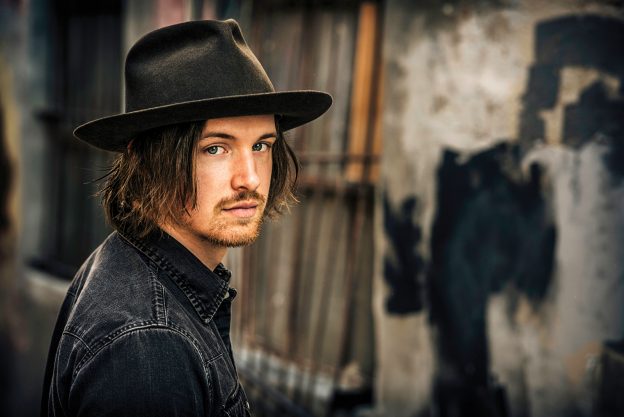
Be Like Gold • David Luning Flexes Americana Muscle on Restless
David Luning probably wouldn’t advise everybody to drop out of college. It worked for him, sure, but the whims of artists come with risks. So far, Luning’s decision to leave Boston’s prestigious Berklee College of Music to pursue a life as a ramblin’ man has proven mostly fruitful, as can be gleaned from a listen to his second full-length record, Restless.
As a student in Boston, Luning studied film scoring, and since the age of 5 was an ardent pianist, composing cinematic piano pieces beginning around eighth grade in Northern California. In high school, Luning was in a couple of experimental rock bands, where some of his more avant-garde influences like Mr. Bungle, Melvins and Pixies were given free reign.
This foundation was shaken to its core after an invitation from a couple of Boston friends to share some music together while Luning was attending Berklee.
“I ended up meeting these two guys who introduced me to the music of John Prine,” explains Luning via phone from a tour date in Ann Arbor, Michigan. “I had never really listened to Americana before, or really much singer-songwriter stuff. But when I heard John Prine’s music I was like, ‘Holy shit! That’s what I need to do with my life.’”
Luning phoned his parents to break the news that he would be leaving Berklee to pursue a career as an Americana artist. While reluctant at first, they ultimately gave Luning their blessing. He moved back to California and started what has been a promising beginning to his career.
“[Americana music] to me was really from the heart and straightforward, yet had a lot of layers in the lyrics,” says Luning. “The simplicity of it and the honesty of it really drew me in for sure.”
On Restless, Luning exposes the influence of those initial inspirations in down-to-earth crowd-pleasers like the single “Driftin’,” a sing-along-worthy tune trumpeting his affinities for life on the road. Opening with a yawn of harmonica and acoustic guitar—a la any song from Nebraska—Luning sings, “Drivin down southbound, headed out/A full tank of gas and an open road/And all I wanna do is travel on/With a band that’s playing music ‘til the sun comes up.” Not exactly earth-shattering sentiment, OK, but the degree to which Luning is willing to admit to a sort of charming naiveté with regard to being on the road is endearing, to be certain. “I wanna keep on driftin’ like a ramblin’ man,” goes the oft-repeated chorus.
With lots of touring under his belt—along with his band, comprised of Ben Dubin (bass, harmonica), Linden Reed (drums) and Dave Sampson (guitar, mandolin)—Luning’s rosy-cheeked optimism for the necessity of copious live dates is at least rooted in experience.
“It’s definitely not always great,” admits Luning. “There are very crappy things that happen sometimes. I guess I’m not quite burnt out yet. There are some people who talk to me and they’re like, ‘You’re still enjoying touring?’ And I’m like, ‘Yeah, I love touring!’ And they’re like, ‘Yeah, OK. You’ll get there.’”
The relative safety of “Driftin’” belies the grittiness and shadowy country-rock bombast of later songs on Restless. Luning’s first record, Just Drop on By, was decidedly rooted in a more traditional country milieu. When writing began for Restless, Luning’s main objective was to create a harder-edged collection of songs. The record’s producer, Karl Derfler (Tom Waits, Dave Matthews), allowed the jagged emotion of such rough-and-tumble tracks like “Bet It All on Black” and “In Hell I Am” to writhe freely rather than to become mired within the canon of traditional Americana expectations.
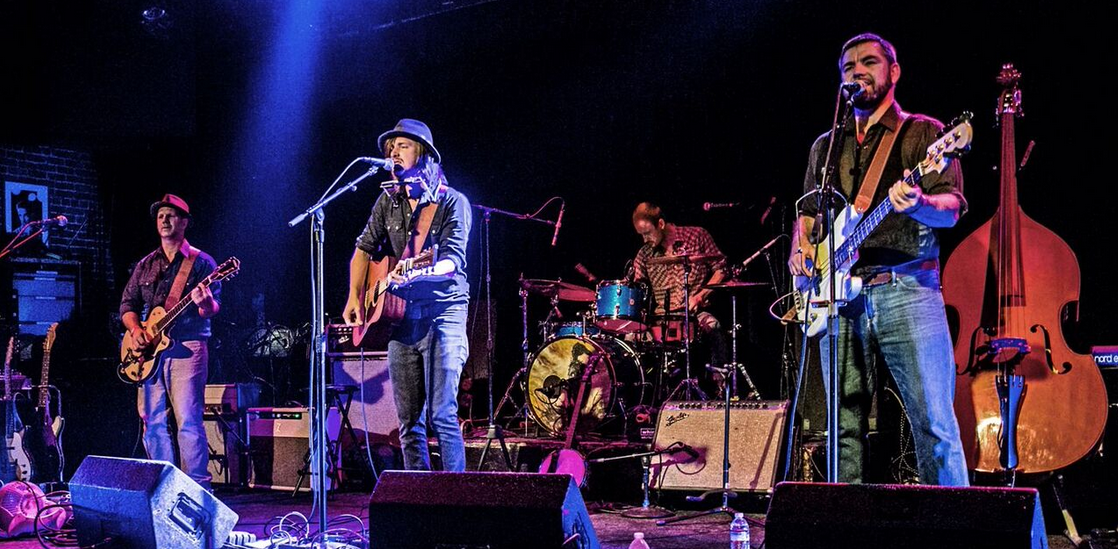
Photo by Jason Baldwin
“The record ended up being much more rock than I ever anticipated,” says Luning. “We wanted to let the songs do what they wanted to do.”
“Bet It All on Black” is the first song on Restless where electric guitar is heard. Luning opens with a mealy blues riff, backed by the pocket-tight rhythm tandem of Dubin and Reed. The song’s ominous undertone is brought to fruition with dynamic quiet-loud-quiet structuring and some evil-sounding lead from Sampson. Luning’s cinematic, film-score-centric background notwithstanding, his writing leaves a little to be desired from someone so enamored by the likes of John Prine. Still, as Luning himself explains, it is the layering of imagery and the open space of the lyricism in a lot of the Americana songbook that draws him in. It is perhaps his attempt at conjuring the same kind of magic with an influx of non-sequitur and worn country-western cliché.
“On John Prine’s ‘Souvenirs,’ he says, ‘I hate graveyards and old pawn shops/For they always bring me tears,’” explains Luning. “You could easily think he just hates those places, but really there’s like 100 stories in that line.”
Where Luning evolves beyond merely the persona of the ramblin’ Americana crooner is on undeniably potent songs like “Be Like Gold,” a sparse, poetic alt-country panorama set to a tale of fathers and sons. Elsewhere, Luning bullseyes heartbreak on the emotive breakup tune “Gonna Forget About You,” the contents of which ought to be apparent simply by reading the song’s title.
Luning’s talents as a songwriter are unshakeable, and the smart planning of having played with the same core musicians for several years is something that veteran musicians wish they’d known when they were starting out.
“I have such a great band, and they’re really close friends and amazing musicians,” says Luning. “But they’re also just really chill and awesome to hang out with all the time. I’ve been playing with them a long time. They kind of now know what I would go for in a song, so it’s a lot easier to bring songs in.”
Luning was finally able to meet the muse of his newfound musical direction. While in a green room after moving back to California several years back, Luning came face-to-face with his idol, John Prine.
“I was so star-struck because his music was what changed my life,” explains Luning. “I had this whole big speech planned where I was gonna tell him how much his music meant to me, and he was introducing himself to everyone because he’s like the nicest guy in the world. He gets to me and he’s like, ‘Hi, I’m John,’ and I was like, ‘Hi … I’m David.’ And that was it!
“I felt so ashamed, like that was so lame, David! Come on. You can do better. I stayed in the green room for another 20 minutes, and really awkwardly staying back there, not really knowing what to do but knowing I had to talk to him again. I walked over to him when he was eating snacks and I reintroduced myself: ‘Hi John, I’m David. We met earlier. I just wanted to tell you that … I play music, too.
“He was like, ‘Oh. That’s great.’”
Someone, quick, cue up “Circle of Life.”
See David Luning live at Harlow’s in Sacramento on May 12, 2017. Luning will serve as main support for headliners, The Dustbowl Revival. Tickets for this 8 p.m. show can be purchased for $15 through Harlows.com. This is a 21-and-over event. For more on David Luning, go to his official website, Davidluning.com.
**This article first appeared in print on pages 22 – 23 of issue #238 (April 24 – May 8, 2017)**
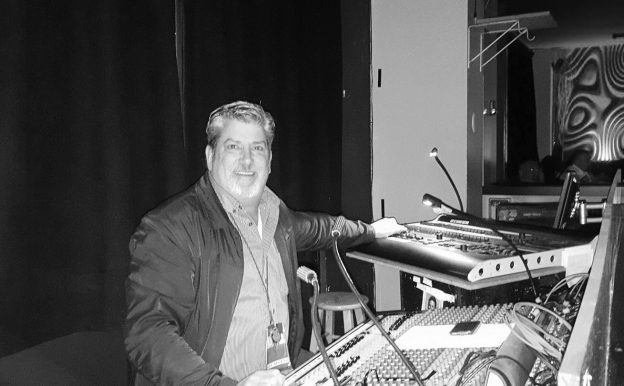
Local Music Community Mourns the Loss of Longtime Harlow’s Soundman John Carlson
If you’ve enjoyed a show at Harlow’s anytime in the last 10-plus years, chances are John Carlson had a large part to do with that. We’re sad to report that earlier this month, the beloved sound engineer who had worked at the popular J Street club for more than 20 years, passed away. John was damn good at his job and was adored by anyone who had the pleasure of meeting him. He was a bit of a legend in the music community, seeing as how he spent so many years helping countless local musicians hone in their sound. Rumor has it he was an amazing keyboard player, too, though I never had the privilege of seeing him get down.
I will personally miss running into John during my afternoon meetings with the venue’s owner, Jim. John would frequently be the one to greet me at the back gate to let me in, and he was always so jolly, smiling and quick to make me laugh.
Upon hearing the sad news of his passing, tons of locals took to social media to post memories about John, so I wanted to gather a few snippets from some of my favorites and post them here, to help show how important he was to so many in our music world. There will be a memorial show for John Carlson at Harlow’s on Thursday, April 27 at 6:30 p.m. Details on the show can be viewed HERE. Visit Gofundme.com/johncarlson to help with funeral expenses and anything else his family needs.
Tyler Campbell, Arden Park Roots: “John was my friend even more so than he was my sound guy … He had an amazing sense of humor and an even better ear for sound. My favorite part about showing up at Harlow’s was catching up with him.”
Stephen Nikkel, Swell Productions: “We will miss John’s great expertise as the master of sound, his cutting sense of humor and just his general presence. Thanks for all the great work on the many shows we have presented here over the years.”
Adrian Bellue, Guitarist: “John Carlson was one of the first people to embrace my music in Sacramento. He always encouraged me, and always made me feel at home, and made me sound great.”
Drew Walker, Gentleman Surfer: “He mentored us … John listened to our band, he gave advice and riffed with us at shows when we made stupid jokes … He influenced me more than I knew, and he helped engender a deep respect for artists of audio craft.”
Jessie Abbey, Musical Charis: “The last conversation we had just a week ago, you told me that you loved Blake [Abbey] and I like we are like your kids … I’ll always remember how you used to let me play around with the light board at shows, how you were the first one to jump up on stage and jam with us on the keys, and you always knew just how to dial us in juuuust right … You are a legend and you will be missed.”
*This piece first appeared in print on page 8 of issue #238 (April 24 – May 8, 2017)**
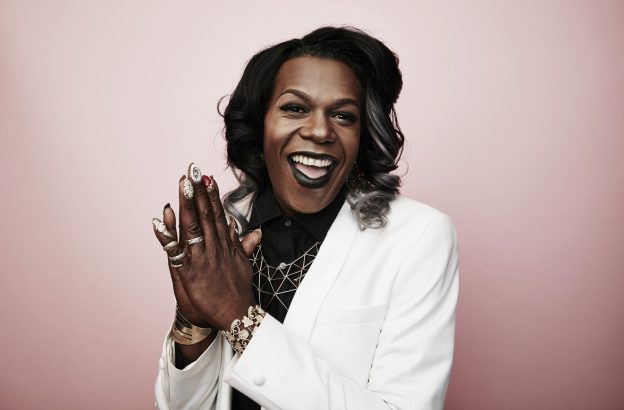
Pressing Onward, Bouncing Back • Big Freedia poised to attack with renewed TV show, cookbook and national tour
Big Freedia, queen diva, you best believe-a.
Bounce ambassador, twerk azz-assin extraordinaire.
Yas gawd, from St. Claude to the Third Ward. The purveyor of pussy-pop, booty-whop and twerking so dangerous, they’ve been known to call the cops (more on this later). A multifaceted performer imbued with the indomitable spirit of her birthplace and artistic stomping grounds in New Orleans, the artist born Freddie Ross has also shared with that city her fair share of tragedy and setbacks, only to re-emerge from the waters of despair once again as undisputed queen of her domain (and in this case the preferred pronoun is “she,” but she doesn’t put too fine a point on it. She lets people please themselves).
An in-depth chronicle of Freedia (pronounced “Free-duh” like Frida Kahlo) and her rise to international stardom can be found in the pages of her 2015 autobiography, God Save the Queen Diva!, which charts her beginnings navigating the bounce music scene (the dance oriented hip-hop offshoot sprung out of the NOLA region that gave birth to twerk as we know it). She started out in the late ‘90s under the tutelage of luminaries like Katey Red, the first trans performer in the genre, and by 2010 was becoming a word-of-mouth icon of ass-shaking empowerment across the country from appearances at major music festivals and videos like “Y’all Get Back Now,” which shows her in true form—larger than life, stomping through the city skyline with her twerk team, enthralling people of all backgrounds and granting them the power to let it all go.
The next four years saw Freedia’s full-scale invasion of the media, with an appearance on HBO’s post-Katrina drama Treme, several short-form documentaries on Pitchfork.tv and the debut of her acclaimed FUSE TV show, Big Freedia: Queen of Bounce, which introduced the world to both her onstage and off-stage families, including her radiant mother, Vera Ross, who sadly passed away from cancer in 2014. Meanwhile, Freedia’s star continued to rise, bringing tribulation as well as triumph.
Early last year, one of her shows in Mississippi was preemptively shut down by a Taliban-esque state organization known as Mississippi Alcohol Beverage Control, which rolls in to bust heads whenever the dangerous convergence of liquor and nasty dancing appears. Still, the Freedia machine took the publicity in stride (there’s still some T-shirts for sale referencing the event as “Twerkloose”). Another roadblock shot up a few months later, when she was brought into court for accepting federal housing vouchers for some time after leaving the required income bracket behind. Narrowly avoiding jail time, she had no time to slow down, and by the end of the year had done a bounced-out commercial for a local law office, and dropped a present on the world in the form of her Christmas album, on which you can learn from Rudy the big-booty-reindeer how to “make it jingle.”
Always up-to-the-minute, Freedia’s biggest moment is always the next one. Now, her profile has exploded with a guest spot on Beyonce’s biggest release to date, Lemonade. There’s also a cookbook in the works—sure to be stuffed with down-home Louisiana favorites. She acknowledges some of the turbulence in her rise to fame in the new title of her TV show for it’s sixth season, Big Freedia Bounces Back, and the title of her forthcoming album, Pressing Onward, but despite the dips and turns in the journey, the queen diva shows no signs of slowing down. On April 26, she’ll appear at Harlow’s, giving Sactown the chance to experience the force of nature that is her live show. During a recent interview, we talked to Freedia about her positive philosophy, her various passions and the power of bounce.
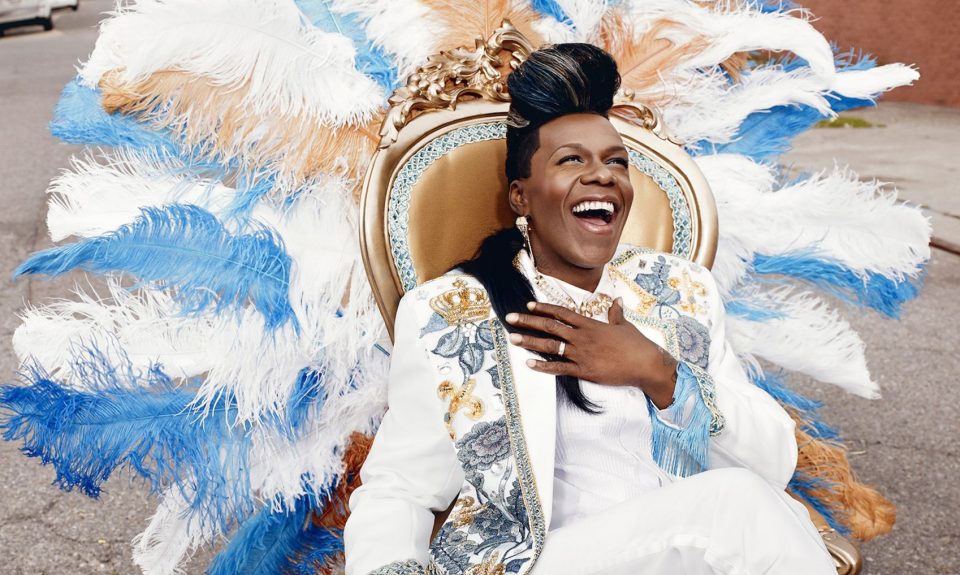
How would you describe the new titles of your work, Pressing Onward and Bouncing Back?
Well, you know there was some things that I went through last year, or whatever … But I’m not letting anything stop me. Through adversity is the light that come … and I’ll never fall off with anything—I’ll bounce back even harder and stronger from all those things that I went through, and just continue to move forward, stay in a positive mind-frame, keep positive energy all around me. When you have all the positive things around you, all the negative things can’t help but fall off. What I want people to take away from my show is to be able to go through their everyday lives and know that, whoever we may be, we’ll all go through things in our lives that we can get through. My strength helps people get through some of their everyday life situations, you know, being out and being gay, losing my mom, dealing with family issues, career issues, taking on things that some people feel are impossible; the strength I show being on TV can help the people to see these things. It encourages them to know that anything is possible, especially where I come from.
Is it hard to keep your circle tight at this level of fame?
Sometimes it gets a little wild, because some people have a wild mind-frame, or they’re not seeing the vision of where you’re trying to go. But it’s important to have your family support, which is my biggest support, and that’s the main goal for me, making sure that my circle stays kinda small, and keeping the people that’ve been around me for awhile. Even though I’ve been through some changes within myself, I still keep things very positive and very professional.
Do you think bounce music could go international? Do you think it already has?
Well, I think it’s already on that stream, you know, I’ve been to a lot of countries, I’ve been to just about every state in the U.S. It’s steady on its journey, it’s steady on its ride. There is some places that I do want to go to, continue to meet the music and the culture, so yeah, I want it to go as big as it can go. Yes, I want to see them in Tokyo bouncing, I want to see them in Africa bouncing, I want to see them in places where people don’t think that it will reach. So I’m still on my path to keep opening that door.
What can you tell us about your new cookbook?
Well, you know, all things that will cater to the flavor of Louisiana, all things that I was taught, things that I came up with on my own. It will be a taste of New Orleans, and it will be something everybody can share in their homes around the world. And I’m very excited about it because I have a passion for cooking, and it takes time to do it, but it comes so effortless, so I’m just excited about the whole journey of the cookbook, so people can see how I like to get down in the kitchen.
What can people learn from Big Freedia and from New Orleans itself about bouncing back?
They can learn from the culture out here. You know, we all bounced back from Katrina, which was something very hard. We’re a family-oriented city, and we love to help each other out, and we know how to get through change and rough times, the adversities of life. People can learn from where we’ve been in general because we’ve all gone through something that can allow us to help someone else in their journey, to help them bounce back.
If you had to quit twerking today, which of your side passions would you concentrate on?
Probably my interior design, because that’s my other passion. But between that and my restaurant that I’m working on, something along that line. But most likely it would be the interior design, because I get to bring so much joy to people. That and cooking both bring people joy. Bringing people food full of soul—anything that still helps people to get through their everyday lives and give them some type of happiness
What is next for Big Freedia: Queen of Bounce? Any big changes in the next season?
Well, you’re gonna have to watch the show, see what’s happening this year. You know I can’t give out too much but this new season is going to be juicy and hotter than ever. We are exploring new things, I’m in a different mind-frame and a different income bracket in my career, I’m elevating to the next level, and I’m steady working super hard, so it’ll be juicy and hot, and everybody’s gonna be glued to the TV. Trust me.
How should first-timers prepare for your performance out here?
Just be ready to experience something really awesome, and wear something loose for y’all to come dance in. Just come down, and we will bring everybody together through the power of ass.
Experience Big Freedia for yourself on Wednesday, April 26, 2017, at Harlow’s, located at 2708 J St. in Sacramento. Doors for this 21-and-up show open at 8 p.m, with tickets $20 in advance or $25 the day of the show. Find tickets and more info online at Harlows.com
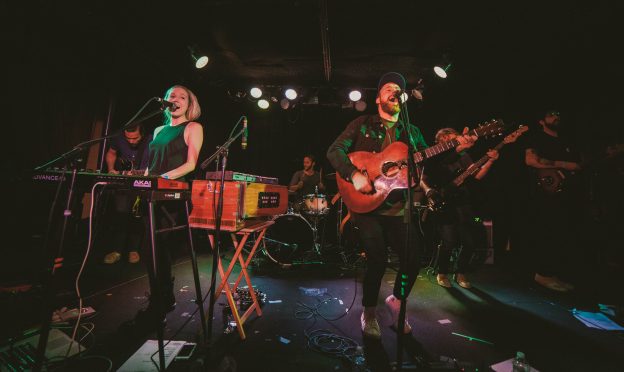
Monday Funday | Branches, Before the Brave | Harlow’s, Sacramento | Monday, Oct. 3, 2016
Sacramento on a Monday night. We had just had our first rain of the season, and it was starting to feel like fall. The streets were wet and the air was getting colder by the minute. Inside the warm and dimly lit nightclub at Harlow’s, 80-plus people were crowded together, celebrating the changing of the seasons with singing, dancing and clapping along to soulful alternative folk and indie rock played by out-of-town bands Branches and Before the Brave.
Harlow’s is a not a small venue, but the crowd filled up the space, making it a cozy escape from the cool weather outside.
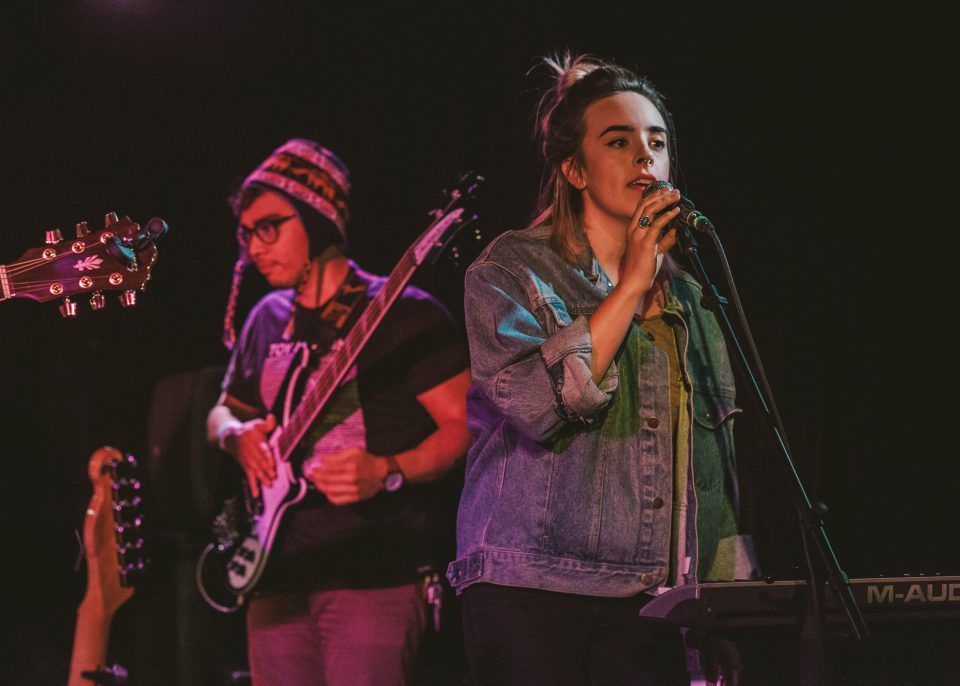
Before the Brave
Before the Brave, from San Francisco, started off the show with a set full of powerfully dynamic songs, driving drum beats and eerie vocal harmonies. Guitarist Jason Stevens sang lead vocals, which were enriched by strong supporting harmonies provided by guitarist Ryan Devisser and keyboard player Beth Garber. The band members (particularly Devisser) were dancing and moving the entire time. It was easy to tell that the musicians were having fun and were happy to be there. People were laughing and dancing along as soon as the band hit the stage, paving the way for the headliners to follow.
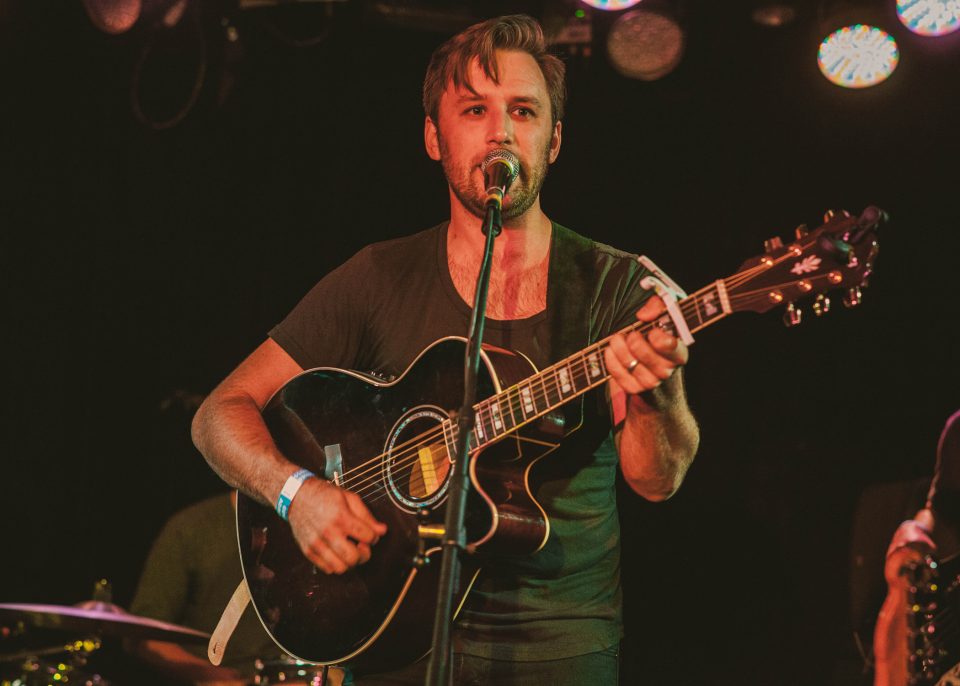
Next up was Branches, who are based out of San Francisco and Los Angeles. Branches is made up of six people, most of whom were introduced to the audience throughout the course of the evening. The frontman is singer/guitarist Tyler Madsen. He had the crowd giggling, singing and clapping all night. Multi-instrumentalist Jacob Montague proved to be a humble performer who, from song to song, effortlessly switched between guitar, banjo and mandolin. (It was his birthday, but we didn’t sing for him because he’d really rather we didn’t.) Last but not least, there was Natalie Nicoles, who captured the audience with her elegant stage presence and all-around musical talent.
“She’s our secret weapon,” Madsen told me after the show, a huge smile on his face.
Nicoles consistently blew the crowd away with her haunting voice and her grasp of the array of obscure instruments that she had surrounding her on the stage. In addition to singing beautiful duets with Madsen, she played the keyboard, the harmonium, the glockenspiel, the tambourine and jingle bells.
Branches plays a lot of love songs, but “I Believe in a Thing Called Love” (a cover of The Darkness song) was probably the most anticipated of the evening. Everyone knew the words, or if they didn’t know them, they caught on quickly. The entire room (or what felt like it, at least) sang the uplifting chorus back to the band, loudly and with conviction.
In case the feeling of love in the room wasn’t strong enough already, the evening ending with a surprise finale that only Branches and a few members of the audience were in on. There was a young couple in the crowd, two die-hard Branches fans who had been introduced to the audience earlier in the evening by Madsen. Before the last song of the evening, the band drew everyone’s attention to the couple once again. In the middle of the crowded dance floor, the young man got down on one knee, pulled out a ring and proposed. (She accepted!) The audience erupted with cheers, and the band topped of the evening with another soul-lifting song from their new album White Flag called “Tomorrow.”
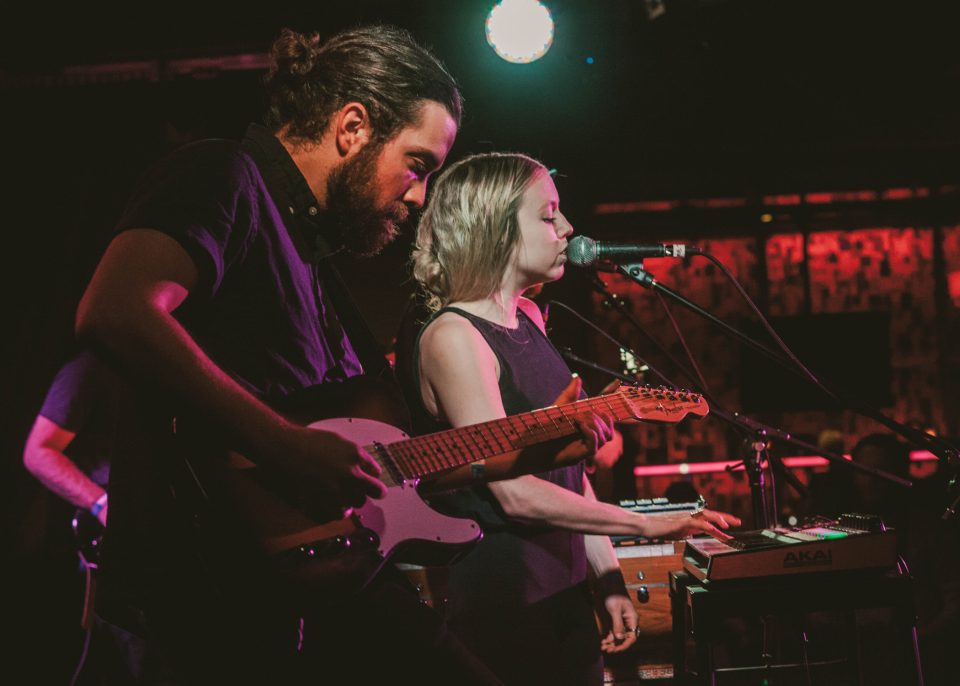
“Here’s to growing old together!” Madsen said, before Branches launched into their final song. Just about everyone in the room got caught up in the moment and were moving, dancing, singing and clapping along.
Then, the show ended (right around 9 p.m., which was perfect for a Monday night) and everyone slowly ventured back outside into the cold to find their cars and make their way home. But everyone in that room took a little bit of love and warmth from the experience with them.
“They were so good!” I heard someone say.
“They were so fun!” a friend responded.
“SO fun!” a third person chimed in.
And that seemed to be the consensus of the evening.
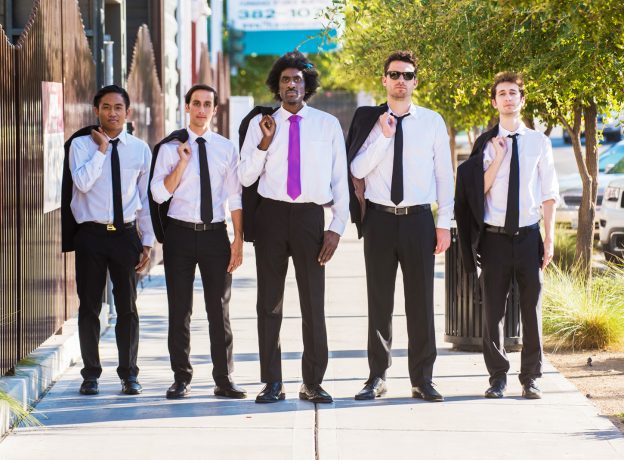
Break Down the Funk: Sacramento Native Rasar Amani Unfolds the Intricacies of His Band The Lique’s First Album
Followers of Sacramento’s underground hip-hop and spoken word circuits may recall the smooth, slick-talking voice of Rasar Amani, formerly Random Abiladeze. He was one of the kids behind the cash register at Dimple Records more than 10 years ago, the only MC on Sacramento sensation Joe Kye’s EP Joseph in the Well and a regular at local venues and colleges.
A call in 2013 from a close friend—world champion beatboxer and America’s Got Talent finalist Butterscotch—led Rasar to try his luck in Las Vegas. That call, Rasar says, forever changed his life. He credits Butterscotch for where he is today—the lead vocalist of one of Las Vegas’ top-rated new bands, The Lique.
Rasar wasn’t looking to join a band. He had completed a successful run in a nightclub show and was planning to leave Las Vegas last year when a friend told him about a group of local jazz musicians looking for an MC.
Guitarist Sean Carbone had a vision for a hip-hop jazz band. His University of Nevada, Las Vegas (UNLV) peers Jeremy Klewicki on drums and Nick Schmitt on bass joined him first. After offering the MC gig to Rasar, the group found Jason Corpuz (“the dopest piano player,” according to Rasar) and in the last year and a half, have scored a residency at a local club, toured venues like Brooklyn Bowl in New York, played music festivals and recorded the band’s debut album Democracy Manifest.
The Lique plays Harlow’s in Sacramento on Friday, Sept. 30 as main support at the album release show for Rituals of Mine (formerly known as Sister Crayon) with James Cavern opening the show. The following night, Saturday, Oct. 1, The Lique will head to Downieville, California to play at ZuhGFest, a grassroots festival at the Sierra Shangri-La Resort along the Yuba River.
Creation of The Lique and Democracy Manifest
Rasar says the guys didn’t know what kind of band The Lique was going to be when they formed. They started off playing his old tracks from the 10 albums he had recorded over the last decade, but as their fan base grew in a matter a months, the need for new material and a unique sound was evident. They had become THE hip-hop band in Las Vegas.
“We had the vision of being classy, wearing suits, having kind of a jazz feel,” he says. “We all got thrown in together and we knew we were musicians but it took a few weird talks about time and the fourth dimension and somehow politics and police brutality came up, but we had never talked about this stuff before over the four months we knew each other. When it came up, I thought, oh, we can go there? That changed the writing.”
Rasar’s past music is rife with political and social commentary, but he hesitated politicizing his fellow cats who just wanted to groove.
“But once we started talking about death and religion … now I write some challenging stuff,” he says. “That was a turning point in the kitchen.”
Bassist Nick Schmitt started writing riffs, building the jazz foundations of the tracks “Batman,” “Velveteen Dream” and “Nastiness.” This was The Lique’s first unique work.
To get a taste of what The Lique is all about, listen to the track “Billie’s Holiday.”
“It really shows what kind of band we are and goes to the heart of what we want to accomplish here,” Rasar says.
Hidden within the track are approximately 20 Billie Holiday songs. The song itself is about traveling, Rasar notes, and how we have to get away from our comfort zones.
The Lique’s look also has a backstory and its own track on the record. The last track, “The Suits,” was inspired directly by what Rasar, who functioned as the band’s manager and booker until recently, calls the “red tape, hierarchical b.s.” of the music industry.
“We’re a conundrum to the higher ups,” he says. “We’re underground, but we’re sophisticated enough that it confuses people. There’s a ton of suits out here—that’s why we wear suits, because it’s ironic. It comes from me traveling the world with Butterscotch and realizing people took me more seriously when I dressed up. So the whole thing is a big, fat wink in everybody’s faces.”
Rasar tells the story of an agent saying, “We gotta appease the suits” when he tried booking a gig. The funny phrase reminded him of a James Brown song called “Pass the Peas” and the Brown-inspired lyrics and riffs for “The Suits” was born.
The industry’s recent repressive ways are a bit of a theme on the album, and Rasar talks at length about 360 record deals that cause artists to lose themselves and their brand as executive greed takes over.
“Walk into my Office” speaks to that in an eerie, Mr. Grinch meets Led Zeppelin kind of way, through a blend of storytelling, characters, voice changes and rap. The song, like many of the others on the album, has multiple layers and side stories. It’s one of the most bizarre hip-hop tracks you’ll listen to this year. You may even have heard it already in one if its reincarnations.
“Walk into my Office” is a remake from a song Rasar did in 2010 in collaboration with Adambomb from New Orleans. Rasar’s (then known as Random Abiladeze) album Indubitably has the original version, which is two-and-a-half minutes long (the current version is more than six minutes).
“I showed the band the song and they loved it,” Rasar says. “We started exploring it, and I would start telling crazier and crazier stories live with it that were never recorded.”
A few obscure references pop up in the album version, including a growl tribute to “I Put a Spell on You” by Screamin Jay Hawkins to honor him.
“I saw an awesome documentary on him on YouTube and he was a contemporary to Etta James, Stevie Wonder … all the original rock ‘n’ roll greats but was too weird and a one-hit wonder and fell off.”
The third theatrical verse in the song is also a tribute and intended for Dead Western, a dark folk/new American artist Rasar did a show with in Sacramento in 2008.
“He was one of the weirdest dudes I was ever paired with in my entire career and it was the best thing they could have done. You don’t really get a chance to do songs like this too many times in your entire life.”
(Note: Rasar has not been able to reach Dead Western to share the song, so, Dead Western, if you read this, contact Rasar).
Another standout track is “Democrashy Manifesht,” which juxtaposes Rasar’s compelling, often agitated lyrics of historical and political significance with the range and expertise of The Lique’s musicians. The backdrop could almost be a 1950s Las Vegas steakhouse, but without the veil in front of the realities of racism and power struggles.
Part of what went into the writing of “Democrashy Manifesht” is Rasar’s family background.
“My parents are older so I grew up on jazz, Motown, gospel, and my dad is from the old deep South, while segregation was still a thing,” he says. “He was born when WWII was rocking on, growing up around the Klan. Yes, I talk on current issues, but there are so many levels of how we got to where we are right now.”
“Democrashy Manifesht” is controversial, but The Lique finds engagement is an important part of their M.O.
“People are making noise but not impact,” Rasar says. “Every moment is potentially wasted if you’re not doing something toward progress and that’s what this album is about. How can we get all this genre bending, norms shifting, sounds and ideas out in 40 minutes without sounding rushed. The epitome of this band, this album, and the city of Las Vegas is how to fit an hour into 40 minutes.”
Collaborators on the Album
More than 20 people contributed sound to this album, including Rasar’s friend Butterscotch on the song “Soul for You.” Rasar credits her for making him the star he is today, connecting him globally through tours and appearances and bringing him to Las Vegas.
UC Davis alum Ruby Ibarra, one of Rasar’s best friends, is on “Nastiness.” DJ Mr. Vibe scratches on that song and he rolls with the Sacramento crew Sleepwalkers, who work with legendary crew, Hieroglyphics. Rasar reconnected with DJ Mr. Vibe when he moved to Vegas to head up music for the Jabawockeez show at MGM.
But for Rasar, the two biggest contributors to the album are sound engineer Dan Brodbeck and Bay Area hip-hop legend Zion-I.
“The unofficial sixth member of the band is Dan Brodbeck,” he says. “He is one of the best audio engineers in the world. He won a Juno [Canadian Grammy] and worked with Dolores O’Riordan from The Cranberries. We recorded in the back of an old vinyl record shop, which set the tone for the album.”
Zion-I is one of those people who is really big but you don’t know it until you see him, according to Rasar.
“Someone gave me his album in 2005 and it’s one of my top albums of all time,” he says. “I had a chance to open for him at Sac State and UC Davis years ago. When he was in Vegas last year, he remembered me. All of a sudden this person I had been looking up to all these years really wanted to connect with me as, it’s hard to say an equal, but we’re all equal as human beings. It was a dream come true.”
For Rasar, working with Zion-I was indication that he’s on the right path.
“The resilience that brings you back to the people you need to connect with, is what the song [Zion-I is on] is about, ‘The Frequency.’ The whole point is how your vibe attracts your tribe and that’s why we put him on the song. He always talks about that energy kind of like a hip-hop hippie.”
Learn more about The Lique and keep up with their tour dates at Thelique.com or at Facebook.com/theliqueband. Check out their debut album Democracy Manifest via the Bandcamp player below.
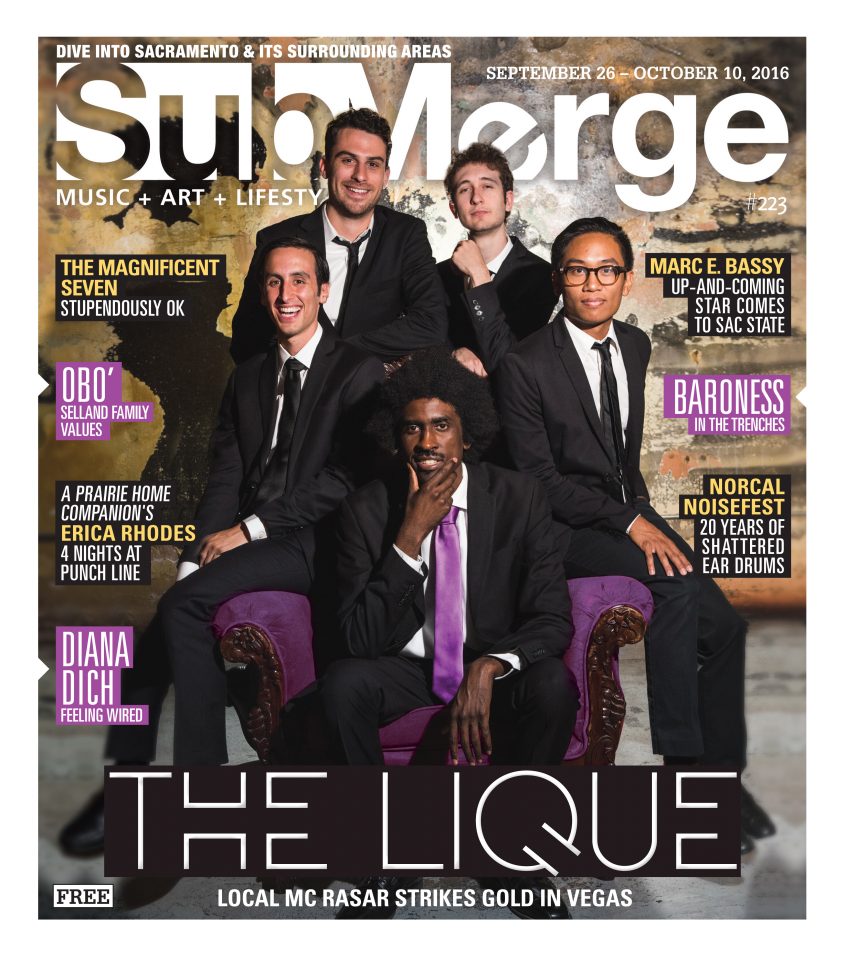
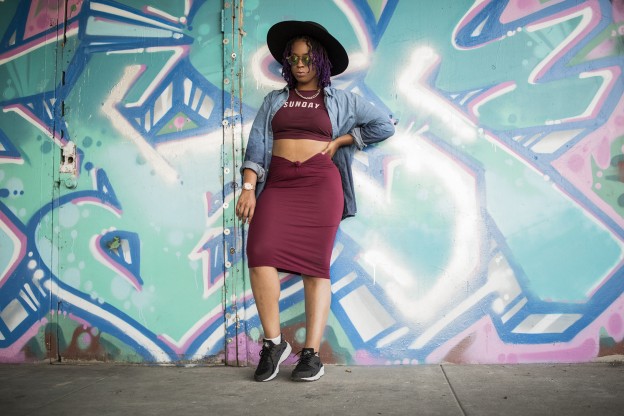
New Levels, No Limits: Zyah Belle Reflects On the Goals That Drive Her Forward
Zyah Belle may be steeped in soul, but make no mistake—her days of soul-searching are over. For now, she has no doubts about the path before her, and she’s just beginning to stretch for the long run. Her album New Levels, out on June 21, 2016, is a document of her moment in time, full of possibility and bubbling with confidence. The Super Nintendo-inspired artwork on the surface slyly reflects her willingness to play with the old school, but the music within all points to the future. The release marks a continuation of a banner year-and-a-half for Belle in Sacramento, with a Sammie award win back in March for best R&B/soul artist, and a featured spot at Concerts in the Park downtown. In between, she’s shared the stage with everyone from hip-hop acts like Rasar to indie-popsmith Joe Kye, showcasing a style defined by emotional connection, and not limited to any single genre.
What does New Levels mean for you?
It’s almost a euphemism for what I compare my life to. When it comes to accomplishing new things, making it through things that I face, I like to compare it to a video game, or to the idea of The Odyssey—the hero’s journey. Anytime you go through something, you might gain some armor, or you might get to pass onward. In a video game, you’re always reaching a new level, having to face a new boss, a new monster, finding that new achievement. I wanted that to come through in my artwork and show that I want to reach a new level in more ways than one, not necessarily just remaining a local artist, but actually being able to compete with what’s going on in the industry, and taking my music to another level.
When was the first moment you realized you wanted to pursue something big with your talent?
Just this past year. For a long time, I sold myself short out of the fear of failure. I would tell myself I wanted to be content and comfortable with just local achievements or little things here and there. Eventually, it got to the point that within one whole year I accomplished every single goal I had made. I wanted to do Concerts in the Park; I wanted to win a Sammie; I wanted to have a song on the radio; I wanted to start working on an album. When all of these things started coming to fruition, I started to think, “Why am I selling myself short? If I feel like I can actually accomplish this huge dream through constant work and effort, and through the law of attraction, why not try it?”
You’ve mentioned before that “Zyah” derives from a Hebrew term “selah,” which is a musical direction included in Psalms meaning “listen.” Is this an important concept for you?
One thing I always say when I interact with new fans and people that come to my shows for the first time is just “Thank you for listening. Thank you for taking the time to listen to me.” You don’t even have to like what I’m saying or like what I’m doing, but because you took the time to listen, that means everything to me. Another meaning of that word, selah, is “reflect.” And that’s huge for me too, because I want them also to be able to reflect. I want it to be something that they can remember. Everything that’s a part of art is to create conversation, so that’s a huge element of what I want people to feel when they listen to my music.
What have been the most important records in your life?
My favorite record of all time would have to be “Funkin’ for Jamaica” by Tom Browne. That song is just everything to me. It feels good, it’s natural, it’s free-form, yet structured at the same time. It’s like organized chaos. Also, I would say “Bag Lady” by Erykah Badu has always been a huge part of me, as well as “Are U Still Down” by 2pac. It’s such a wide range of music that has registered for me, but definitely, being able to put myself in the emotions of the song and the artist has always been something I enjoy doing.
How has your experience been performing with a wide array of other musicians in the Sacramento area?
It’s knocked down a lot of barriers in more than one way. For me, it’s been a beautiful experience just meeting people of different backgrounds, different genres. Also, I think for my fan base, it’s been extremely important for people to see that, because myself, being labeled as an R&B artist—it’s not something that’s only marketed to the urban community. I’ve got to be on stage with Joe Kye, a violinist who composes contemporary jazz; I’ve been on stage with Rasar and The Lique, who do hip-hop and some neo-soul; I’ve also played with Hans! and the Hot Mess. I’ve gotten to do so many things with many different kinds of artists, and it really shows that, for people, music is just one language. I’m truly a part of this family among Sacramento musicians, and outlying areas, and they’ve all helped me in many ways, whether it’s my growth as an artist or just introducing me to other people and venues on the scene.
What has had the most impact on your vocal style?
Most of my influence in vocal training came from my music teacher in high school. I wasn’t really fortunate enough to be involved in my jazz vocal program at Sac State as much as I wanted to be. Around that time I actually ended up being without a home, which has been a huge part of driving my music career as well. Throughout my life, singing has always played a big part—my mom was a choir director, so I was already being trained in a choir from a young age. Then, as I grew up I started being classically trained to sing in Latin and to sing old jazz standards. Those things helped me use my voice as an instrument, to alter the sound like any musician would. It makes a difference in how my structure songs, how I evoke emotion in them.
You were without a home? How did you make it through that time?
Shortly after I graduated high school, I ended up enrolling in the vocal jazz program at Sac State. I was still a teenager, living with my mother, and she had to move back to the Bay Area. I had the choice of staying in Sacramento or moving back too, and that didn’t seem like an option for me. I wanted to make things work on my own, and I did, for a couple of weeks. Then it became overwhelming. I was sleeping on my sister’s couch for a very long time, trying to find a job, busing myself from South Sac to Sac State to take classes, and eventually I ended up dropping out of school for a while. Of course it was depressing to go from the comfort of your home and being a new undergrad and then having to drop out and get a 9-to-5 while sleeping on your sister’s couch, so for me, the most exciting part of my day was being able to sing. Nothing else at that point was making me happy, so I thought, why not pursue it?
Has that experience made you more courageous when it comes to music?
Yes, I really have no fear as to what’s going to happen in my life, how it’s going to happen or when it’s going to happen. I think that over time, just gaining wisdom, I’ve learned that, for the things I can control, I just put my all into it. And for the things I can’t control, I just have to find peace with it. All I can do is sing my heart out at every single show, be genuine, have integrity, talk to people, network, do all the business things that I’m supposed to do. More than anything, I’m excited about the things that are going to happen, the things happening right now.
What do you most want to bring to the audience or have them understand?
The main thing that I want my audience to feel is the sincerity in my voice. It’s not all the time that the audience is going to be able to relate—it’s not all the time that an audience will like the music—but I want them to at least feel that real emotion is being evoked, and that I believe what I’m singing. That’s a huge thing about being an artist that can stifle an artist, especially when in the industry and having to face media—the fact that they want to be liked by everybody. I understand that this isn’t realistic. Not everybody will like me, not everybody will like every single song that I put out. They may like some, they may only like one. But at least they can say, “When she sang that, she really felt it.” That sincerity in music is so necessary. That’s what creates timelessness.
Hear Zyah Belle perform the songs off New Levels live July 8, 2016 at Harlow’s, located at 2708 J Street in Sacramento. This 21-and-over event will also feature The Lique and DJ Rock Bottom, with doors opening at 8 p.m. for the 9 p.m. show. Tickets are $12 in advance and available at Harlows.com.
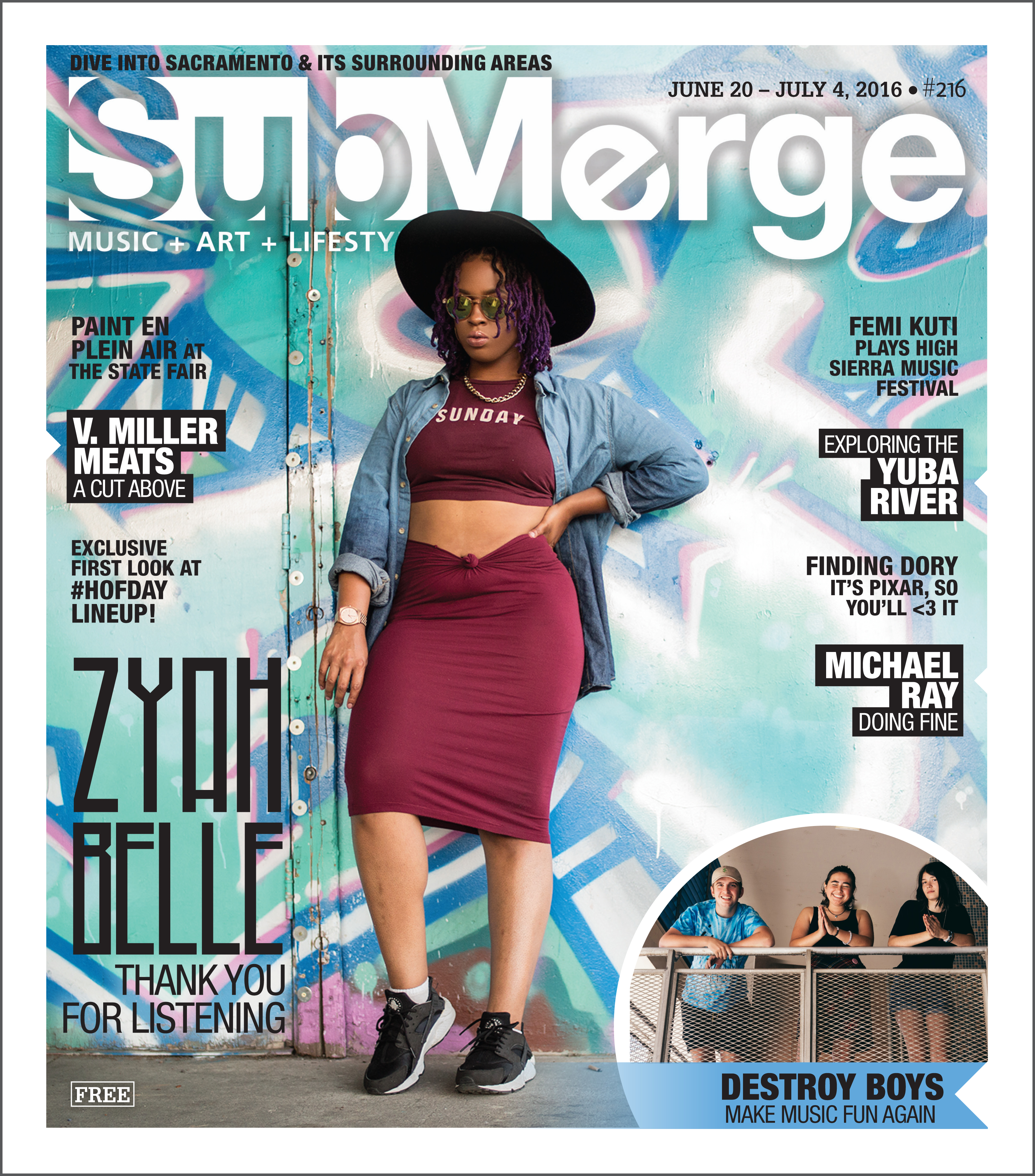
–Photo by Natho Photography
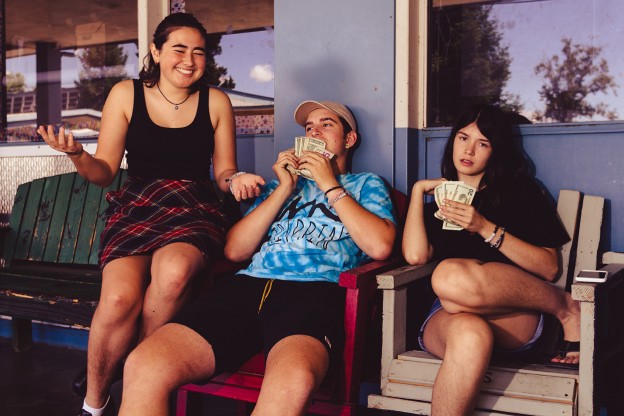
I Like Boys, Ahhhh! The Zany World of Destroy Boys
Sob Story
Once upon a time, I almost gave up on journalism, mostly because in every interview, bands started saying the same exact things: “We’re going to change the music scene forever, man!”; “We have a unique sound that nobody has ever heard!”; and “We need to up our social media presence!” They said that kind of stuff over and over again, like some bullshit mantra of the perpetually mediocre. Pretty soon, I started hearing the desperate machinery of marketing and branding entering into every riff and melody of their stupid songs. It was no longer music, just a series of dog whistle pleas for Facebook “likes” and networking opportunities. Talking to musicians was ruining music.
It wasn’t until recently when music became exciting again. Bands like Little Tents, Dog Party, RAD, Death Rogen, etc., seem unmotivated by networking and branding, and instead their music—raw, interesting and, at times, funny—resonates with a certain soulfulness, like it comes from a place of pure fun. The fun of playing with friends. The fun of creating rad songs. And when music is fun, fans flock naturally.
Because everybody likes fun, goddammit.
Which is where Destroy Boys come in. Vi Mayugba (guitar), Alexia Roditis (vocals) and Ethan Knight (drums) materialized one day with their scrambled up, punk-ass garage rock—songs ranging from folky to full of angst and rage. And they have magnificent titles, like, “I Threw Glass at My Friends’ Eyes and Now I’m on Probation,” a fast-paced, monologue-heavy rocker with tons of laughs. There are also slower and moodier songs like “Goldilocks Spot” where Roditis wails like a depressed lounge singer. And, of course, there’s my favorite song, the hardcore “30 Seconds of Shit,” which in half a minute makes me want to burn down a police station. For an EP that only lasts about 10 minutes, it’s full of energy and great fun, a much better advertisement for a band than, say, a Facebook post with hella likes or a viral YouTube video of a cute baby doing stupid shit.
The band really sort of sprouted up out of nowhere. One minute Destroy Boys didn’t exist and the next people were super into them. I mean, they have a good collection of songs, they’re releasing a couple singles on Uncool Records and they’ve even racked up two proper shows at 924 Gilman, but, like, where did they come from? The answer is I have no fucking clue. When I went back to listen to the recording of our interview at Temple Coffee, it sounded like a bunch of people yelling, then laughing and then everybody talking at once. My notes look like the scratchings of a nonsensical madman. Interviewing this band is like being inside Ken Kesey’s One Flew Over the Cuckoo’s Nest, but with hyperactive teenagers instead of mildly dangerous crazy people. To get you in the mood, here’s a typical conversation with Destroy Boys:
“We’re basically Rush,” Mayugba says.
“You kind of look like Mick Jagger,” Knight says, laughing and pointing.
“Actually she looks a little bit like Steven Tyler,” I say.
“Steven Tyler! That’s who I was thinking of! I didn’t mean to say Mick Jagger!” Knight yells. “You’re the Gordon Ramsay of Sacramento music!”
“I’ll take that,” says Mayugba.
And then they start yelling at each other again.
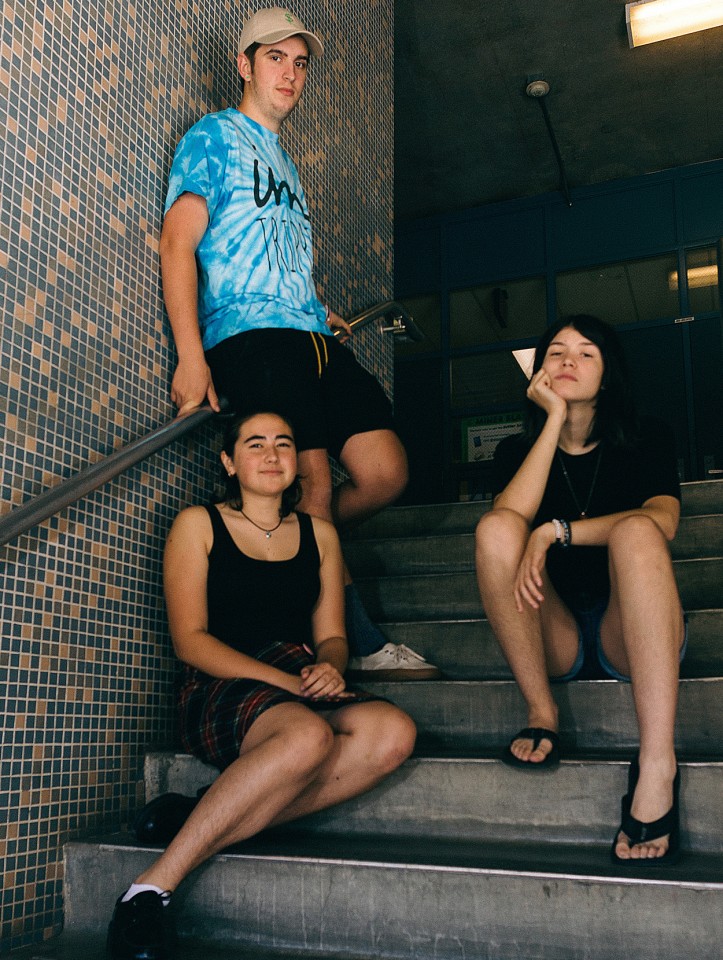
Serious Draw
It’s sort of sweet, the way the band interacts, like a dysfunctional family that can’t tell if it hates or loves each other passionately. Mayugba plays the mother who knows what’s best for the band. Knight is the rebellious son. And Roditis is the responsible older sister, always there to mop up everybody’s shit.
Like a family, despite their dysfunction, they work quite well together. They keep this running list of possible song titles, weird shit like “I Love Dying,” “Jo Jo Binks” and “Texting Won’t Pay the Bills.” Mayugba tells a story about the time she was sitting around with Lucy Giles (from Dog Party) and out of nowhere, Giles gets a really sad look on her face and says, “I like boys, ahhhh!” Mayugba thought that would make a perfect song title, so she wrote “I Like Boys, Ahhhh!” in a section of her phone called “Title Notes.” The whole band compiles title notes and they all draw from the list when they’re out of ideas.
Make no mistakes: The band, however wacky, loud and obnoxious, still wants to be taken seriously. They’re not just a bunch of fuckups.
“I think we all want to be successful,” Mayugba says. “It’s my career of my choice. This project is my baby. I am the manager. I handle all the stuff. But we have a lot of fun with it and I think that’s how we’re going to reach success is being ourselves and having a good time with it.”
“Blah, blah, blah, blah,” Knight interrupts, making wild gestures with his hands.
“No, it’s true!” Mayugba says. “I don’t know if this sounds arrogant or not, but we’re above the tier of another local band. We gather some serious draw—”
“Yeah, that sounds like you’re full of yourself,” Knight interjects.
Mayugba tweaks her statement: “We’re not signed, we’re not selling out venues, but we’re having a lot of fun.”
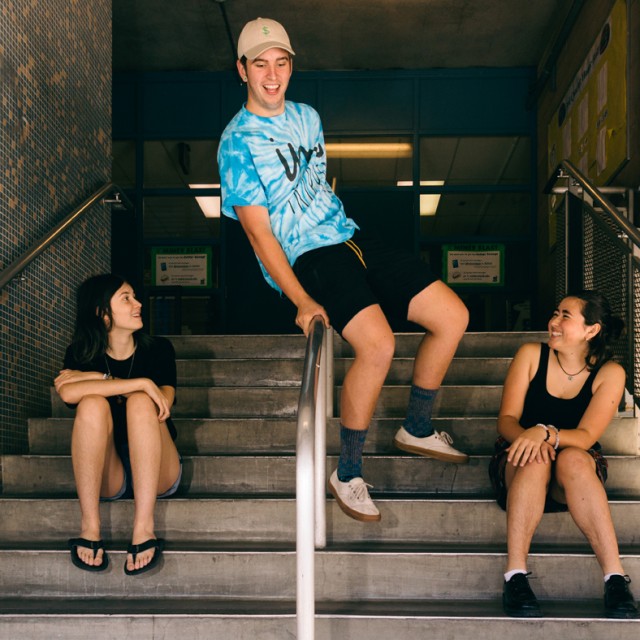
Worn Out Our Welcome
I wonder about the name Destroy Boys, and Roditis tells me that the name has caused a bit of confusion, and even anger, amongst fans. They’ve even been accused of being “feminazis.”
“We get a lot of stuff for our name.” Roditis explains. “I remember at our Naked Lounge show a guy came up to me and he was like, “I really like your set, but, um, where did the name Destroy Boys come from? Do you hate men?” I was like, “Please leave me alone. I’m walking to the bathroom.”
And at this point in the interview, a poor woman sitting next to us on the couch trying to enjoy her coffee and newspaper becomes visibly agitated. She looks at me like, “What the fuck?” and then without a word she gets up and leaves the coffee shop. Without skipping a beat, the conversation somehow turns to white people.
“I hate white people,” Knight pontificates.
“Ethan, you are the whitest member of this band!” Mayugba says. “You are transparent.”
The band laughs and laughs and laughs and laughs, etc.
Catch Destroy Boys June 28, 2016, at Harlow’s, located at 2708 J Street in Sacramento. Together Pangea and Patsy’s Rats are also playing this 7 p.m. all-ages show, with tickets ranging from $12–$14. For tickets and more info check out Harlows.com. Destroy Boys will also play the second annual Sac Ladyfest at Cafe Colonial, located at 3520 Stockton Blvd in Sacramento. The two-day festival goes down July 15-16, 2016, and features 15-plus bands. Learn more at Sacladyfest.com.
